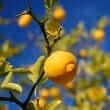Background
- Bitter orange (Citrus aurantium) comes from a flowering, fruit-bearing evergreen tree native to tropical Asia, but is now widely cultivated in the Mediterranean region and elsewhere. Bitter orange contains synephrine, an alkaloid with similarities to ephedrine.
- Over the centuries, bitter oranges were highly valued for their food and medicinal properties. In ancient China, unripe bitter oranges were used to make zhi shi, an herbal extract used to treat constipation, improve energy (chi) and to calm nerves in cases of insomnia and shock. In the Amazon rainforest, indigenous tribes used bitter orange tea as a laxative and to relieve nausea, stomach pains, indigestion, gas and constipation.
- It is claimed that bitter orange is an effective aid to weight loss and a safe alternative to ephedra. However, evidence shows some increase in heart rate and short-term calorie burn, and it may raise blood pressure and exacerbate existing heart problems. Weight loss benefits are unproven and safety questions remain. The U.S. Food and Drug Administration (FDA) banned the sale of ephedrine-containing dietary supplements. Some products previously containing ephedrine have been reformulated to include Citrus aurantium.
References
Natural Standard developed the above evidence-based information based on a thorough systematic review of the available scientific articles. For comprehensive information about alternative and complementary therapies on the professional level, go to . Selected references are listed below.
- Bent S, Padula A, Neuhaus J. Safety and efficacy of citrus aurantium for weight loss. Am J Cardiol 11-15-2004;94(10):1359-1361.
View Abstract - Bouchard NC, Howland MA, Greller HA, et al. Ischemic stroke associated with use of an ephedra-free dietary supplement containing synephrine. Mayo Clin Proc 2005;80(4):541-545.
View Abstract - Bui LT, Nguyen DT, Ambrose PJ. Blood pressure and heart rate effects following a single dose of bitter orange. Ann Pharmacother 2006;40(1):53-57.
View Abstract - Fang F, Dong M, Zhu H. [Effect of Citrus aurantium extract on L-type calcium currents in ventricular myocytes of single guinea pigs]. Hunan Yi Ke Da Xue.Xue Bao. 2003;28(4):353-356.
View Abstract - Firenzuoli F, Gori L, Galapai C. Adverse reaction to an adrenergic herbal extract (Citrus aurantium). Phytomedicine 2005;12(3):247-248.
View Abstract - Fugh-Berman A, Myers A. Citrus aurantium, an ingredient of dietary supplements marketed for weight loss: current status of clinical and basic research. Exp Biol Med (Maywood.) 2004;229(8):698-704.
View Abstract - Gougeon R, Harrigan K, Tremblay JF, et al. Increase in the thermic effect of food in women by adrenergic amines extracted from citrus aurantium. Obes Res 2005;13(7):1187-1194.
View Abstract - Gray S, Woolf AD. Citrus aurantium used for weight loss by an adolescent with anorexia nervosa. J Adolesc.Health 2005;37(5):414-415.
View Abstract - Haller CA, Benowitz NL, Jacob P III. Hemodynamic effects of ephedra-free weight-loss supplements in humans. Am J Med 2005;118(9):998-1003.
View Abstract - Hosseinimehr SJ, Karami M. Citrus extract modulates genotoxicity induced by cyclophosphamide in mice bone marrow cells. J Pharm Pharmacol 2005;57(4):505-509.
View Abstract - Hosseinimehr SJ, Tavakoli H, Pourheidari G, et al. Radioprotective effects of citrus extract against gamma-irradiation in mouse bone marrow cells. J Radiat Res (Tokyo) 2003;44(3):237-241.
View Abstract - Martin KW, Ernst E. Herbal medicines for treatment of fungal infections: a systematic review of controlled clinical trials. Mycoses 2004;47(3-4):87-92.
View Abstract - McBride BF, Karapanos AK, Krudysz A, et al. Electrocardiographic and hemodynamic effects of a multicomponent dietary supplement containing ephedra and caffeine: a randomized controlled trial. JAMA 1-14-2004;291(2):216-221.
View Abstract - Nasir JM, Durning SJ, Ferguson M, et al. Exercise-induced syncope associated with QT prolongation and ephedra-free Xenadrine. Mayo Clin Proc 2004;79(8):1059-1062.
View Abstract - Nykamp DL, Fackih MN, Compton AL. Possible association of acute lateral-wall myocardial infarction and bitter orange supplement. Ann Pharmacother 2004;38(5):812-816.
View Abstract







